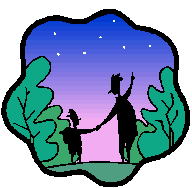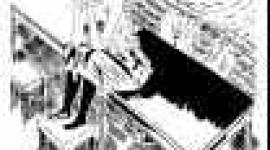Healing Our Wounds
"Letters to Sam" author, Daniel Gottlieb, on the hurt of emotional pain and healing of emotional wounds.

Dear Sam,
Shortly after my accident, an occupational therapist introduced me to an anti-gravity device that would help me gain some use of my arms. The therapist strapped me into slings counterbalanced with springs, so my arms were literally weightless. Splints were attached to my hands. In each hand I held a pencil with the eraser-end pointing down. Using the feeling I still had in my shoulders to move my arms and hands and manipulate the erasers, I practiced turning the pages of a book. As my arms gained strength, the therapist reduced the springs' pressure so I would become strong enough to hold them up without the device. By the end of the week, I was able to turn pages without any assistance. My wife and the therapist were impressed by how quickly I'd been able to master this. "Look how much you've accomplished in one week!"
I felt complete despair.
"Five years ago," I said, "I wrote a three-hundred-fifty-page doctoral dissertation. And now you want me to be proud because I can turn a page?"
Sam, I know there will be times when you are hurt. Even now, when things don't go your way, you feel terrible emotional pain. But I hope you won't blame yourself or someone else for the pain. And, strange as it sounds, I also hope you will not listen to people who try to talk you out of your pain or show you ways to fix it. Because if you try too hard to fix pain, it only takes longer to heal!
continue story below
Inevitably, all pain is about longing for yesterday -- whatever we had before, whatever used to be. But when pain doesn't go away fast enough, we criticize ourselves for not getting over it, for not being strong enough, or even for being vulnerable in the first place.
Sam, that's not how wounds heal. They don't obey our wishes. Healing takes place in its own way and in its own time.
About a year after that bleak experience of struggling to turn a page, I was back at work. Alone in my office, I attempted to move a printed article from a filing cabinet and put it onto my desk where I could read it. A single staple held together the sheets of paper. As I slid the stapled sheets from the filing cabinet, they started to slither from my grasp. I knew from bad experience that if paper fell to the floor and lay flat, I would have to get someone else to come and pick it up. As the papers started to slide down again, I slowed them with the back of my hand pressing against the filing cabinet. As the papers landed on the floor, they formed a tent, staple-side up, that I knew I could recover. With careful maneuvering, I got my thumb under the staple and gingerly lifted the article up to my desk.
It took about twenty minutes. And as the article finally came to rest faceup on my desk, I felt great pride.
Then I thought back to the previous year. Why did I feel grief then and pride now?
A year before, I was longing for yesterday. This year, I was living in today.
My wound had been healing. Not because I wished it to, not on my timetable, and not by any fancy techniques. I wasn't even aware that I was healing until that moment in my office.
How did the healing come about? The way wounds heal is a miracle. Inevitably, they heal on their own. All we have to do is not let our hungry egos demand that the pain go away on a certain timetable. We need to have faith that the pain will pass. After all, pain is an emotion and no emotion stays forever.
Sam, you will meet a lot of well-meaning people who think they know ways that you can heal more quickly and feel less pain. They may be eager to suggest those ways and may even insist there are things you "should do." They do, indeed, mean well, and most are acting out of genuine caring. But before you take their advice, remember that everything a physical wound needs to heal is already in the body. Oxygen, blood, nutrients are all in there, ready to begin their work. And the moment you are wounded, the healing begins.
Emotional wounds are the same. Sometimes these wounds do not heal because the mind gets all involved and says things like "I should do this and I'll feel better," or "Maybe I could do that to repair the damage," or "I am hurting because of what another person did, and once they fix it, I will feel better."
All of this mind talk just interferes with the natural healing process. When you feel deeply hurt, you have everything you need in yourself to repair the damage. You want compassion, understanding, and nurturing in order to heal. But most of all, you need time.
When I am in a dark tunnel, I want to be with people who love me enough to sit in the darkness with me and not stand outside telling me how to get out. I think that's what we all want.
When you are hurt, be close to people who love you and who can tolerate your pain without passing judgment or giving you advice. As time passes, you will long less for what you had yesterday and experience more of what you have today.
Love,
Pop
Copyright © 2006 Daniel Gottlieb
excerpted from the book Letters to Sam by Daniel Gottlieb Published by Sterling; April 2006.
Daniel Gottlieb, a practicing psychologist and family therapist, is the host of "Voices in the Family" on WHYY, Philadelphia's National Public Radio affiliate. A columnist for the Philadelphia Inquirer, he is author of two books, including a collection of his columns entitled Voices of Conflict; Voices of Healing. He is the father of two daughters, and Sam is his only grandson. The author's royalties will benefit Cure Autism Now and other children's health organizations. Visit www.letterstosam.com for more info.
APA Reference
Staff, H.
(2008, December 14). Healing Our Wounds, HealthyPlace. Retrieved
on 2025, April 20 from https://www.healthyplace.com/alternative-mental-health/sageplace/healing-our-wounds

